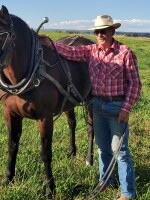Thursday last week, the Drought Monitor update reported that nationally, almost 622 million acres of crops are experiencing from moderate to exceptional drought, and 6 million head of beef cattle are also being impacted by these drought conditions. As the corn harvest continues in the Midwest, dry, dusty harvesting conditions are creating higher fire risks than normal.
Also related to drought in the Midwest, I reported a couple of weeks ago that low water levels in the lower Mississippi River were concerning both shippers and the U.S. Army Corps of Engineers, but now, low water levels are real problem, not just conjecture. Late last week it was reported that a logjam of more than 100 ships, tugboats and their convoys of barges had caused the shipping of grains, fertilizer, metals and petroleum to come to a halt. The Ingram Barge Company, the largest U.S. barge operator on the River declared a force majeure, warning customers that it wouldn’t be able to make good on deliveries due to “near-historic” low water conditions on the Mississippi, the most important route to get U.S. grains and soybeans to the world market. As water levels have dropped, barge terminals are having difficulty loading barges, and at some terminals they aren’t able to operate because of low water levels at docks. There are also reports that loaded barges were required to off load some cargo because the draft restrictions changed by the time that barges were ready to move. Lately, there have been numerous reports of barges getting stuck on sandbars that are usually well below the surface and therefore don’t normally impede shipping.
Last week, Colorado rancher Lenny Klinglesmith, discovered that 18 head of 600 pound calves were dead on the ranch he and his wife Jackie own near Meeker. The local Colorado Parks and Wildlife Division Manager stated that all 18 calves had trauma indicative of a wolf pack killing, and that nothing fit the modulus operand of a bear, lion, or poisonous larkspur plants. Lenny Kinglesmith is a member of the Stakeholders Advisory Group that was convened by Colorado Parks and Wildlife to provide a range of viewpoints from diverse geographic areas of the state to determine how to provide compensation for livestock producers when wolf depredations occur. In the language of Proposition 114, the voter-approved measure that prompted the plan to release wolves in the state, it dictates that owners of livestock that have been killed by wolves must be paid fair compensation, and that the restoration of wolves to the state must be designed to resolve conflicts with persons engaged in ranching and farming in the state. However, wolf releases as a result of Proposition 114 have not been made in the state yet, and wolf depredations reported in northwest Colorado are thought to come from wolves that have migrated south from Wyoming.
Cattle producers may be interested in a Beef Cattle Artificial Insemination Clinic that Montezuma County Extension and Pueblo Community College Southwest are offering November 3rd to the 5th in the Cortez area. The clinic will provide participants with both classroom presentations and hands on artificial insemination practice. Contact Emily Lockard at 970-564-4170 for additional information or to register. The Clinic is limited to 15 participants.
Retired large animal veterinarian and author Dr. Paul Dettloff wrote: “The smallest good deed is better than the grandest intention.”



